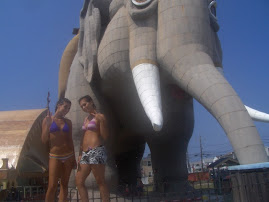1) The power of the imagination is often represented in Romantic poetry. In my opinion, "Kubla Khan" doesn't really celebrate imagination; it warns people of its indulgence. This poem is about high-energy and life. He doesn't focus on one part of his dream, he talks about everything and anything in this poem. He talks about the intense power of his dream, but it isn't as detailed because he includes everything, in a way the poem is way too vast. For example, "so twice five miles of fertile ground" and "and all should cry, Beware! Beware! His flashing eyes, his floating hair!". These lines show the variety of everything. Coleridge fell asleep after taking opium and dreamt about what is happening in this poem. When he woke up, he wrote about these things and his mind was probably all over the place so he couldn't center around a certain topic. It is not good to imagine things that are that vivid and intense, and this is probably a direct result of the drugs that he took. The poem cautions us about desires and wishing too much. Coleridge may be writing for all people because the poem alludes to deep human desires. He may think that all humans are selfish and expect way too much. Some things that Coleridge may feel humans want too much of are pleasure, control, power, lust, appearance, and war. So even though his dream was a direct result of an overactive imagination and opium, he still points out some very interesting points about humans' actions.
2) In the sonnet, "Ozymandias", there are four speakers. There is the main speaker, the sculptor, the traveler, and the King. While reading the story, the different voices mean different things to me. The main speaker was basically the narrator telling the tale that the traveler "from an old antique land" told him. He never experienced seeing the crumbled ruins, but he truly believed what the traveler told him, and therefore passed the story along to us. The sculptor created the sculpture of King Ozymandias. He understood the emotions and desires of the King so therefore he made the face of the King with a "frown and wrinkled lip and sneer of cold command". King Ozymandias was very spoiled and ignorant. He bragged about his lifestyle and was extremely boastful. His words on the pedestal are a perfect example to his behavior: "My name is Ozymandias, king of kings, look on my works, ye Mighty, and despair!" I feel this sonnet was very ironic towards the end because the King's statue crumbled and fell, as with his "empire". His tragic flaw (pride) got the best of him and now he is left alone with his shame.
Monday, March 23, 2009
Subscribe to:
Post Comments (Atom)





.jpg)















No comments:
Post a Comment